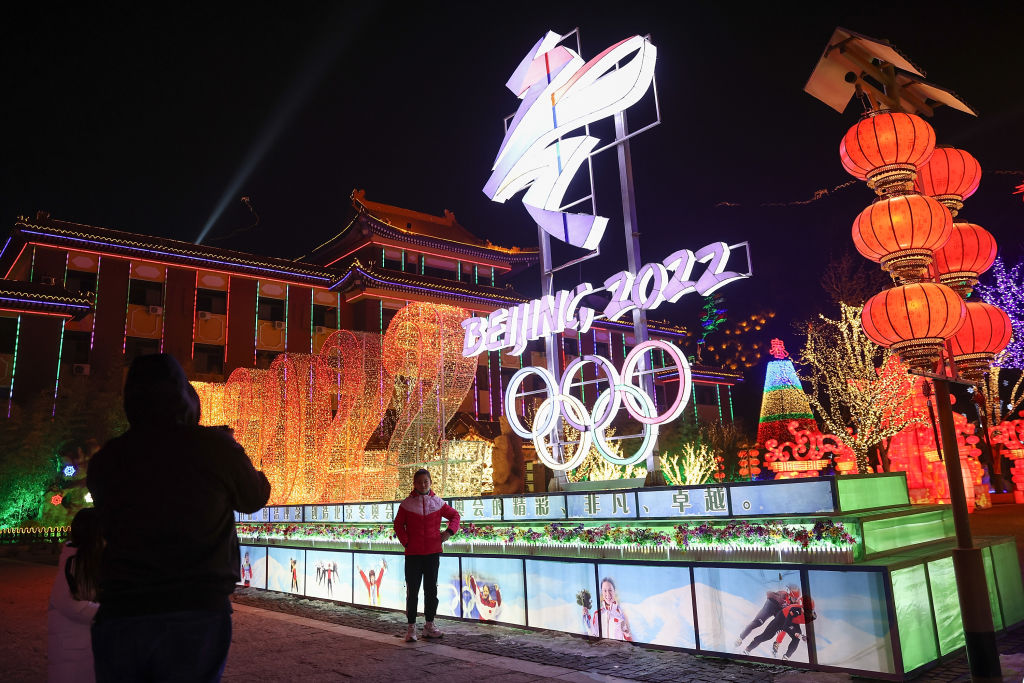Our mission to make business better is fueled by readers like you. To enjoy unlimited access to our journalism, subscribe today.
China will not reach herd immunity until mid-2022, months after Beijing plans to host the 2022 Winter Olympics, China’s top health official said Saturday.
George Gao, the director of China’s Center for Disease Control and Prevention, estimated to Chinese media on Saturday that 70% to 80% of China’s 1.6 billion citizens would need to get vaccinated for the country to reach herd immunity. He said that China’s COVID-19 vaccine coverage is low and that the country is likely to reach herd immunity in the middle of 2022 at the earliest.
“If the vaccine rollout is faster, herd immunity will be reached by the middle of next year; if the rollout is slow, it will be the end of next year,” he said.
Gao’s projection is more conservative than the vaccination goal set forth by top Chinese epidemiologist Zhong Nanshan. Zhong said last week that China aimed to vaccinate 40% of its population by June. If China reaches that goal, it would be on pace to vaccinate 70% to 80% of its population by the end of 2021.
Like the rest of the world, China is eager to vaccinate its population as quickly as possible. But unlike its peers, it faces an imposing deadline: its plans to host the Winter Olympic Games in February 2022, an event that would normally attract hundreds of thousands of visitors.
China has now approved four vaccines for domestic use, two from state-owned vaccine maker Sinopharm and one each from the private firms Sinovac and CanSino. Altogether, China expects to be able to produce 2.1 billion doses of these vaccines annually by the end of 2021.
But even with an array of vaccine options, China’s government has proved relatively slow in delivering shots to people. China has administered 52.5 million shots to its citizens, more vaccine doses than any country except the U.S. But China ranks 53rd in the world in vaccinations when adjusting for population size, according to Bloomberg. China has administered roughly 3.5 COVID-19 doses per 100 citizens, far behind countries including the U.S., which has given 27.2 doses per 100 people, and global leader Israel, which has injected 96 doses per 100 people.
China’s relatively sluggish rollout may be, at least in part, a product of the country’s success in battling the pandemic.
Surveys show that Chinese citizens are among the world’s most receptive to COVID-19 vaccines, but even the vaccine-willing may choose to wait to get inoculated while living in places relatively free of infection.
In February, a survey of 756 medical workers in the southern Chinese province of Zhejiang demonstrated that only 28% of respondents wanted to get vaccinated right away. The majority said they wanted to refrain, for now, from getting jabs because of concerns about the low efficacy of the vaccines and the relatively low risk of getting infected in China.
But as Gao’s estimate indicates, China may have to rapidly popularize vaccines and scale up distribution efforts if it hopes to reach herd immunity through vaccination before the start of next year’s Winter Olympics on Feb. 4, 2022.
In early February, Chinese President Xi Jinping reiterated Beijing’s commitment to hosting the 2022 Games in a call with Thomas Bach, president of the International Olympic Committee.
“[China] will complete all preparation work as scheduled, so as to ensure the Beijing Winter Olympics a complete success,” Xi said, according to the Chinese government’s description of the call.
China’s borders are currently closed off to most foreign travelers, and those who can enter China are required to complete two-week hotel quarantines upon arrival.
On Monday, Chinese Foreign Minister Wang Yi said at the press conference that China will soon introduce health certificates that would use evidence of vaccinations, along with COVID-19 tests, to prove that people are protected from the virus. International travelers using the vaccine passports could eventually be exempt from mandatory quarantines, he said.
There are early indications that China sees vaccines as a prerequisite to participating in the Olympics.
Wang said at the press conference that China was willing to work with the International Olympic Committee and Japan to deliver vaccines to athletes in the lead-up to this summer’s Olympic Games in Tokyo.
Currently, organizers of the upcoming Tokyo Summer Olympics say they are committed to hold the Games but are questioning whether they will allow any fans to attend because of the risks of COVID-19.
“Let’s focus our eyes on Tokyo this summer and meet in Beijing next year,” Wang said.







